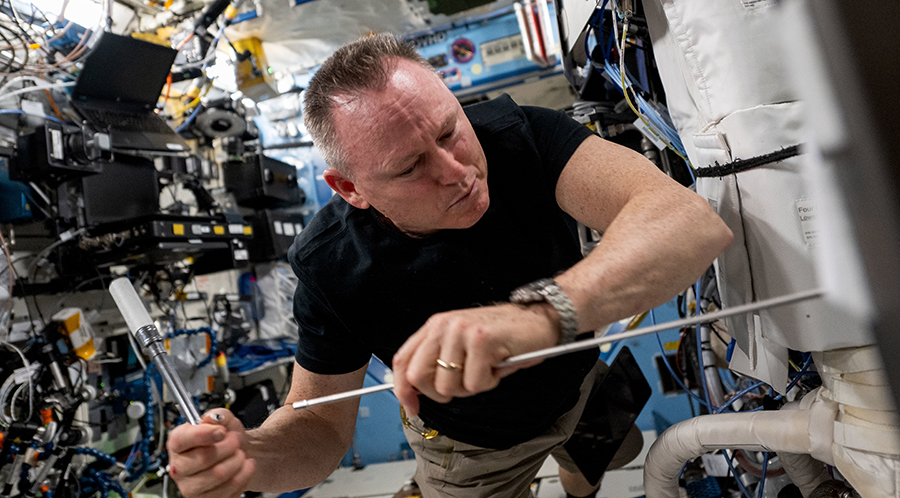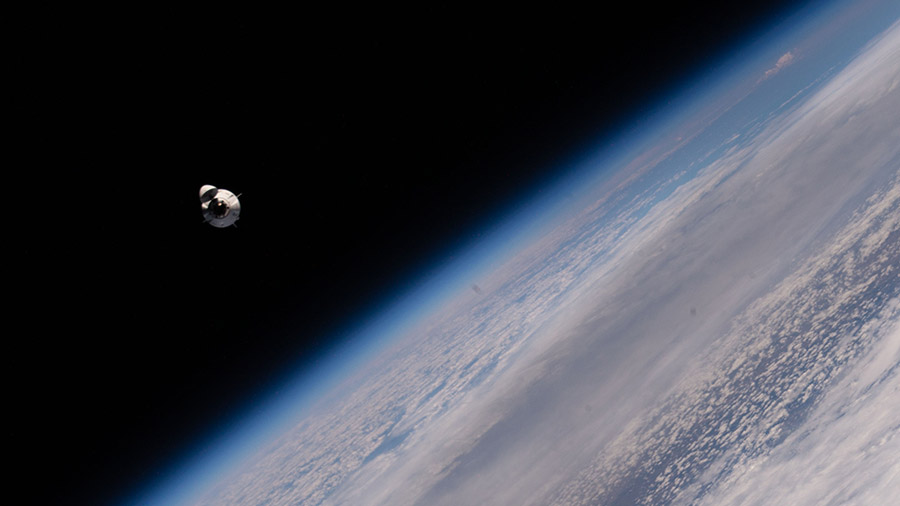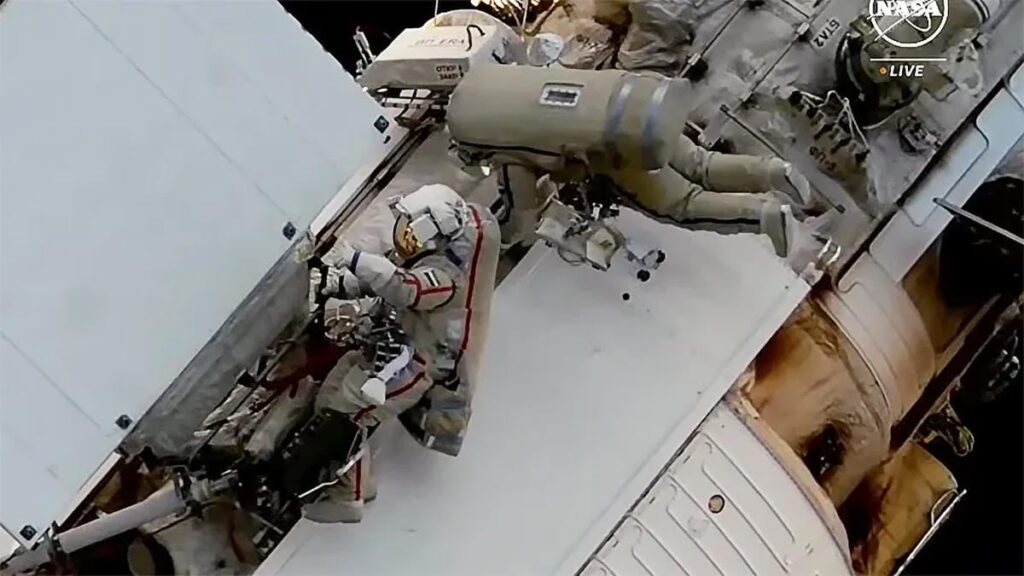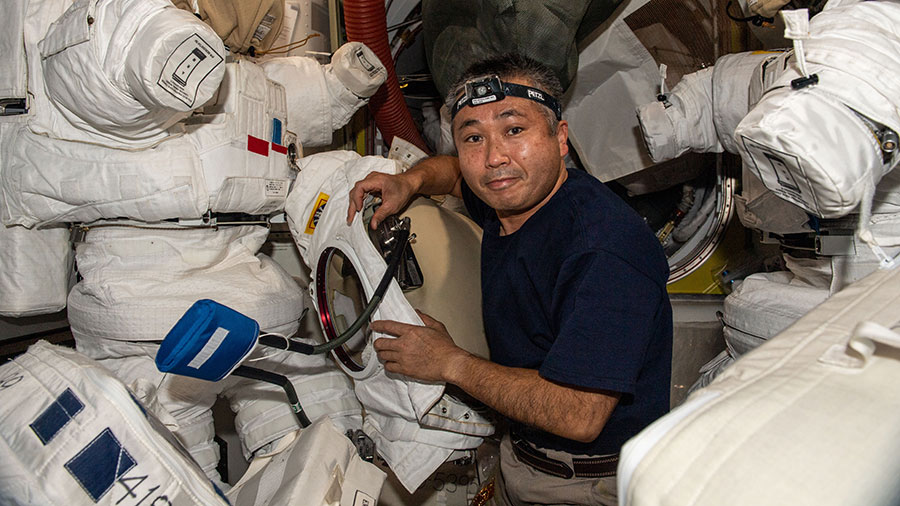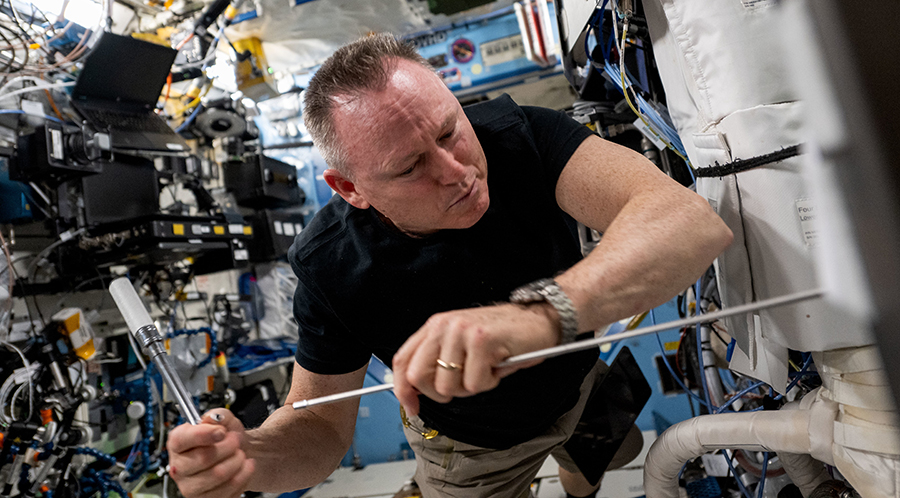
Biotechnology research topped the science schedule aboard the International Space Station on Tuesday to advance in-space manufacturing of health therapies. The Expedition 72 crew members also took a physical fitness test, studied futuristic piloting techniques, and maintained a variety of research and electronics hardware throughout the day.
NASA Flight Engineers Don Pettit and Nick Hague worked together on Tuesday exploring how to manufacture nanomaterials to mimic DNA. The astronauts partnered together in the Kibo laboratory module processing and imaging samples of the DNA-inspired nanomaterials inside the Life Science Glovebox. Doctors expect results in microgravity will be superior to those on Earth helping build the space economy and improve treatments for space-caused and Earthbound health conditions.
Roscosmos Flight Engineers Alexey Ovchinin and Aleksandr Gorbunov joined each other for a pair of human research studies on Tuesday exploring physical fitness and planetary piloting techniques. Ovchinin attached electrodes to Gorbunov that recorded his heart and breathing activity while he pedaled on an exercise cycle. Afterward, the duo took turns wearing a sensor-packed cap that measured their responses as they practiced on a computer futuristic planetary and robotic piloting techniques crews might use.
Station Commander Suni Williams and Flight Engineer Butch Wilmore, both NASA astronauts, worked throughout the day servicing a host of research hardware and electronics components ensuring ongoing lab operations with high quality results. Williams first collected her blood sample, spinning it in a centrifuge, then stowing the specimen in a science freezer for later analysis. Next, she inspected a power cable in the Tranquility module, swapped batteries in medical hardware, then serviced samples for a 3D medical device printer. Wilmore started the sample operations for the 3D medical device printer study, then replaced a power cable for a wireless system, swapped fuel bottles inside the Combustion Integrated Rack, and finally serviced racks and panels inside the Columbus laboratory module.
Roscosmos cosmonaut Ivan Vagner spent his day primarily on orbital maintenance testing thermal sensors, transferring gases and liquids, and inspecting windows in the Zvezda service and Nauka science modules. He also explored ways to improve communications among international crews and flight controllers then joined Gorbunov and set up hardware for an upcoming space digestion study.
Learn more about station activities by following the space station blog, @space_station and @ISS_Research on X, as well as the ISS Facebook and ISS Instagram accounts.
Get the latest from NASA delivered every week. Subscribe here: www.nasa.gov/subscribe

